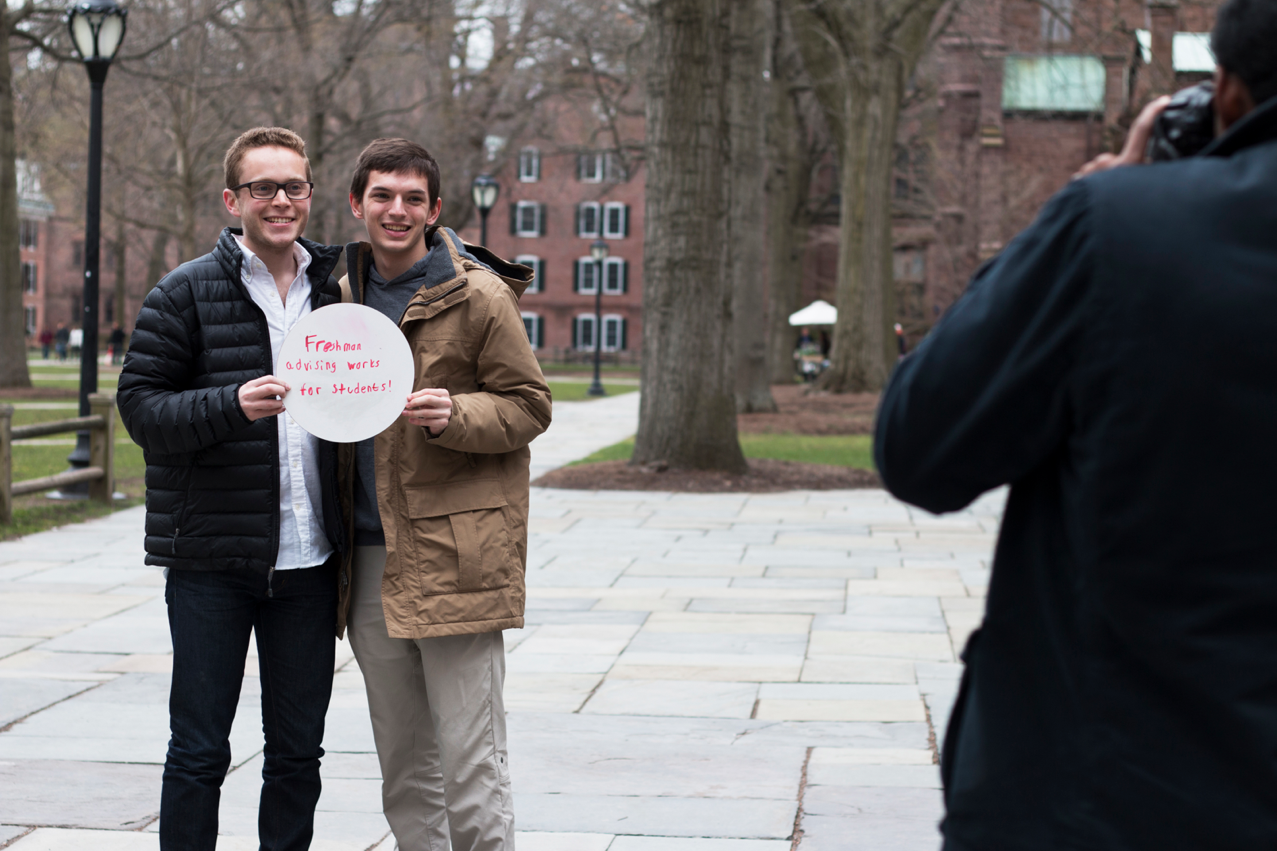
For the first time in Yale College Council history, all presidential candidates have formally pledged to run “positive, substantive” campaigns.
All five of this year’s presidential hopefuls signed the pledge, which presidential candidate Josh Hochman ’18 proposed on Wednesday, the day before candidates officially announced their candidacies. The document is meant to serve as a supplement to the official YCC campaign rules, which stipulate that candidates may not engage in fraudulent, intimidating or derogatory publicity tactics. Hochman’s pledge contains four statements, some of which overlap with the official rules but some of which go a step beyond them. Specifically, each candidate promised to speak positively about each of the others with no personal attacks, to not marginalize any group on campus, to respect other candidates’ posters and to not leave anonymous comments on public forums.
The other four candidates — Peter Huang ’18, Diksha Brahmbhatt ’18, Sarah Armstrong ’18 and Carter Helschien ’18 — said they look forward to a positive campaign season, although they differed in their opinions of how important the pledge would be in creating that positivity.
“There is oftentimes a gap between the YCC and the student body, and these elections are opportunities for the YCC to convey to the student body what the YCC is about,” Hochman said. “We wanted to emphasize from the beginning that this is a campaign that will stress how the YCC is a productive body and will not be about bickering.”
The pledge acknowledges the role elections play in shaping students’ perceptions of the YCC. It declares that the candidates are committed to creating a YCC culture that is “representative, approachable and fair,” and that focuses on each candidates’ visions and plans.
Hochman said he proposed the pledge because he wanted to ensure that the campaigns focused on ideas important to the Yale community instead of mocking any individuals or campus discussions. The agreement illustrates the high quality candidates the YCC has this year, because everyone decided to sign on, he added.
It is unlikely that the document will become a permanent part of the YCC election process each year: Several candidates interviewed agreed that the pledge was not necessary, because they expected a positive campaign process regardless.
Huang said he never anticipated anything but a productive election week. Brahmbhatt highlighted the rules and guidelines the YCC already have in place to ensure that the entire campaign process remains positive.
Current YCC President Joe English ’17 said whether or not the agreement was necessary, it is a positive sign that shows the earnest nature of each candidate. Like Brahmbhatt, English said the YCC’s election guidelines and informational meetings already do a good job of outlining proper election week behavior, but he added that he would not be surprised if comparable agreements were made in the future.
Despite presidential candidates’ confidence that the election process will remain largely positive, campaigns have taken negative turns in the past. Two years ago, in the 2014 election, several personal attacks and allegations were made against candidates.
After each of the four candidates that year published a column in the News explaining their campaigns, the columns generated numerous comments which centered around personal attacks. On the same day then-presidential candidate Sara Miller’s ’16 column was published, former YCC President Danny Avraham ’15 posted a comment claiming that Miller had spread “malicious rumors” and that students had filed complaints to the Council Elections Commission about her. Miller, who was a photography editor for the News, told the News in 2014 that an investigation had occurred but determined that she did not violate any regulations. In addition, Michael Herbert ’16 — who was eventually elected in a runoff vote — addressed his personal political views at a YCC presidential debate, after several commenters criticized his alleged opposition to gay marriage. Herbert denied that he had ever made any such statement.
All four candidates running for office that year told the News in 2014 that the atmosphere around the election week had become increasingly negative.
This year’s candidates agreed that the upcoming presidential election atmosphere will be different from that of two years ago. Both Huang and Armstrong said all of the candidates have known each other since their participation in student government as freshmen, adding that this would contribute to the positivity of the entire campaign process. And Helschien said he believes the campus has shifted dramatically from the culture of the 2014 YCC elections.
“I think it’s great that they’re agreeing to run a positive campaign, and I have complete faith that they’ll be able to talk about substantive policy issues,” English said. “I really hope Yale students and the publications that endorse the candidates will take their platforms seriously, as well as the way they represent themselves and the YCC.”
Last year, English was elected YCC president with 68.25 percent of the student vote.







